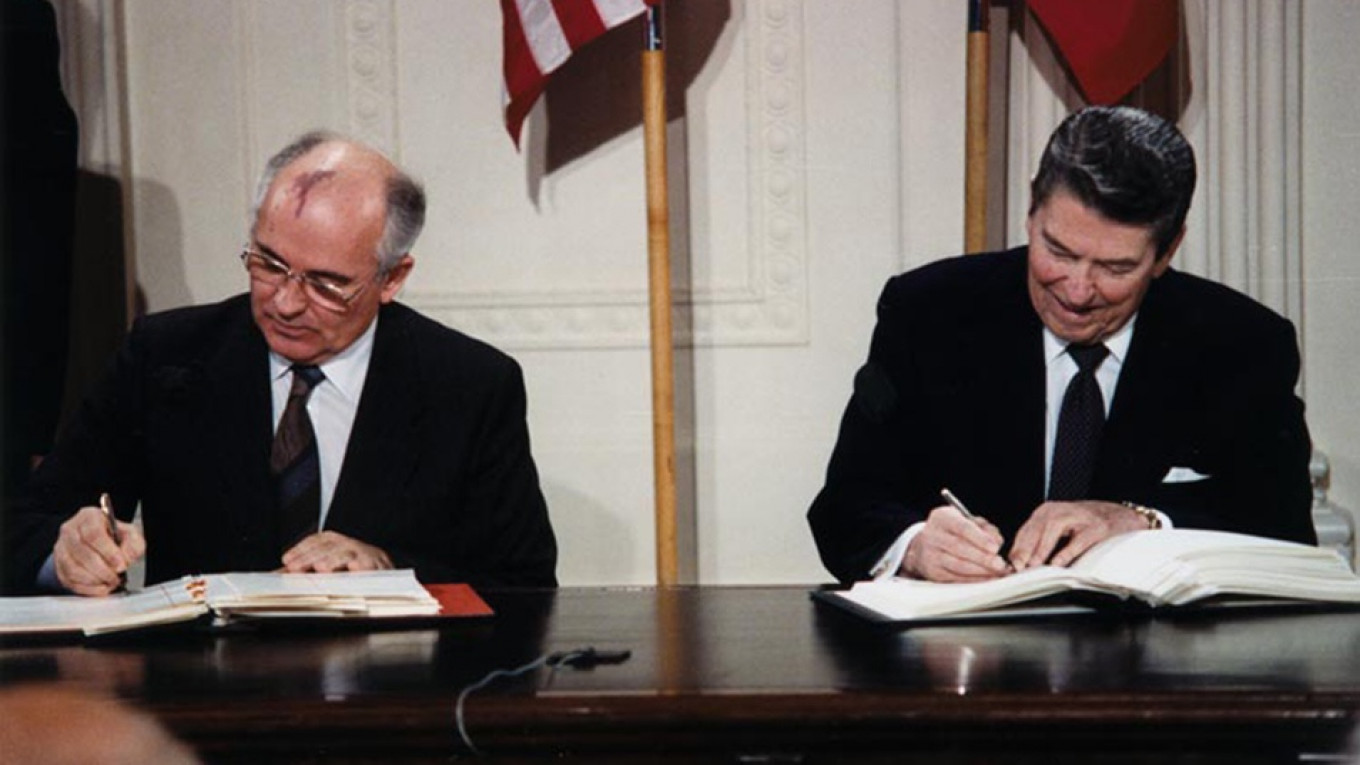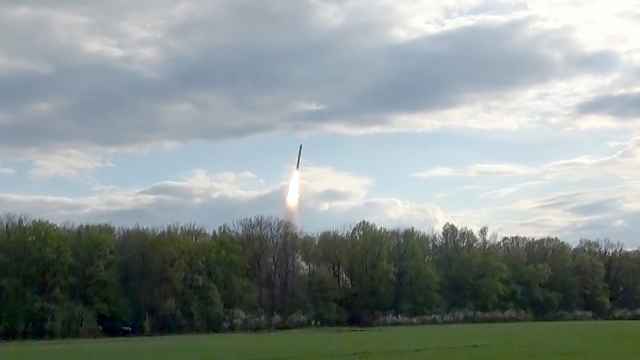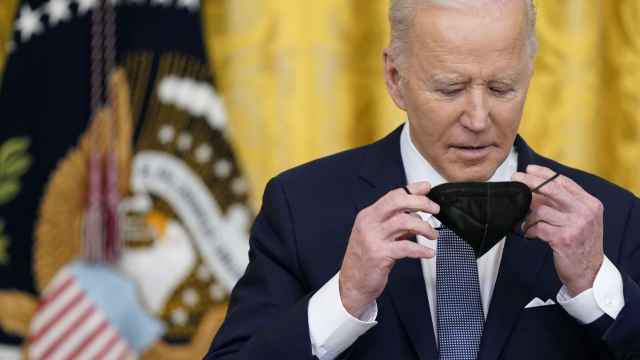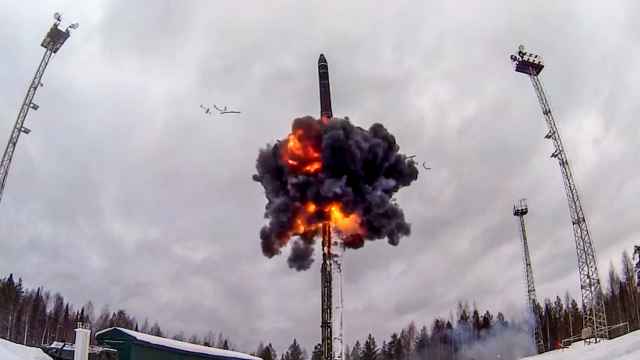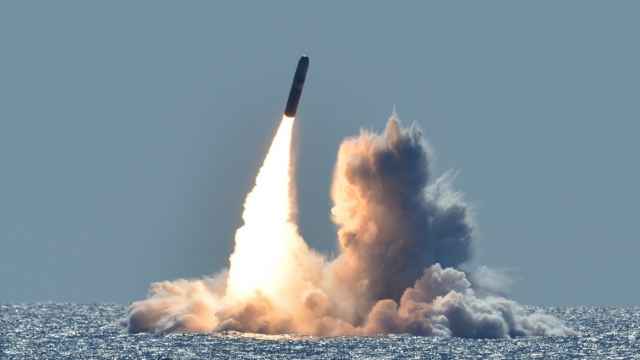Seventeen years ago, in late 2001, the George W. Bush Administration announced its unilateral withdrawal of the United States from the Anti-Ballistic Missile Treaty (ABM) that Moscow and Washington signed in 1972 and had served as a foundation of global strategic stability for 30 years. I remember well the tremendous efforts the Russian leadership poured into trying to keep the American side from taking this step. President Vladimir Putin met several times with President George W. Bush, to propose ways of preserving the treaty.
An overwhelming majority of countries throughout the world supported Russia’s stance in repeated votes at the UN General Assembly as well. The withdrawal of the United States from the treaty was not approved of by its main allies either. Within the United States, politicians and experts voiced their concerns about the consequences of withdrawing from the Treaty. Everything was in vain: Washington ignored the opinion of Russia, the global community and the domestic opposition and resolutely demolished the ABM Treaty.
Today, many years later, we can say with confidence that the withdrawal from the treaty failed to strengthen the security of the United States and did not advance the country towards realizing its far-reaching plans of building a unipolar world. Moreover, while having formally withdrawn from the treaty, Washington was essentially forced to comply with its terms, since it had neither technological capabilities nor the financial resources to build a full-fledged missile defense system.
At the same time, the very fact that the United States withdrew from the treaty caused significant damage to both the complicated mechanism of control over the strategic nuclear potentials of Russia and the United States, and the non-proliferation regime more broadly. The unilateral demolition of the ABM Treaty could not but affect the level of confidence between Moscow and Washington; it also became a serious obstacle in the way of bilateral cooperation on other nuclear matters.
Unfortunately, history does not teach those who do not wish to learn from past mistakes. Now Washington has decided to unilaterally withdraw from the Intermediate-Range Nuclear Forces Treaty (the INF Treaty) signed by the U.S.S.R. and the United States in 1987. Once again, contrived pretexts are being put forward that fail to convince anyone and show that Washington openly disregards the interests of international security, including the security of its closest allies in Europe, Asia and throughout the world.
It is perfectly clear that the withdrawal of the United States from the INF Treaty will only accelerate the deployment of that type of missile by both the United States and Russia, as well as by a large group of states that have the necessary capabilities. Many of those countries are in high-risk regions where military tensions are already elevated.
I would venture to suggest that, following the withdrawal from the INF Treaty, the U.S. Administration will waste no time in making the decision not to prolong the New START Treaty (Strategic Arms Reduction Treaty) signed in April 2010 and expiring in 2021. Adding to that the facts the United States still does not intend to ratify the 1996 Comprehensive Nuclear-Test-Ban Treaty and that Washington demonstratively withdrew from the 2015 Iran nuclear deal, there is much to worry about.
What consequences could these steps taken by the United States have? There is a lot of room for judgment and catastrophic predictions. But one thing is clear: Nothing good can come of this. Everyone will lose here, including the United States.
Is there still any hope of dissuading Washington from taking such destructive steps? It seems unlikely. As we have seen, the United States prefers to listen to itself only and follow its “America first” slogan. Withdrawal from the INF Treaty is not an exception to the rule. Nor is it an annoying failure or a mistake. Rather, it is the logical continuation of a course in global affairs that the United States has been steering for several years now. By the looks of it, the United States has no intention of abandoning this course in the near future.
It seems logical to ask how other global political actors should react to Washington’s conduct in international affairs. It would seem that in the coming years we can expect, on the one hand, the rapid acceleration of the race for all manner of arms and, on the other hand, the hasty rapprochement between various states and groups for the sake of ensuring their own security in the face of the open challenge made by the United States.
As for Russia, along with the continuation of its policy of modernizing the armed forces with due account of new challenges and security threats, it should also consider stepping up diplomatic efforts to bring about a closer coordination of efforts with its partners and countries, which share its concern about this new emerging political climate. This applies primarily to China and other states along Russia’s borders. But not to them alone. An agenda item of today is shaping a global coalition of responsible international actors, primarily of great powers that are opposed to the adventurism of the United States. It would appear that the question of creating new and strengthening the existing multilateral mechanisms for ensuring strategic stability should be raised, even if the participation of the United States in these mechanisms is postponed for an indefinite amount of time.
Washington has to understand that unilateral steps which damage international security actually lead to the growing isolation of the United States in international affairs, the erosion of America’s global leadership and even the closest allies and partners of the United States losing their confidence in America. Then, the feeling of responsibility and basic common sense that Americans have always had in spades will ultimately triumph over their intoxication with political adventurism.
Igor Ivanov is President of the Russian International Affairs Council (RIAC). He was Russia's Foreign Minister from 1998 to 2004. The views and opinions expressed in opinion pieces do not necessarily reflect the position of The Moscow Times.
A Message from The Moscow Times:
Dear readers,
We are facing unprecedented challenges. Russia's Prosecutor General's Office has designated The Moscow Times as an "undesirable" organization, criminalizing our work and putting our staff at risk of prosecution. This follows our earlier unjust labeling as a "foreign agent."
These actions are direct attempts to silence independent journalism in Russia. The authorities claim our work "discredits the decisions of the Russian leadership." We see things differently: we strive to provide accurate, unbiased reporting on Russia.
We, the journalists of The Moscow Times, refuse to be silenced. But to continue our work, we need your help.
Your support, no matter how small, makes a world of difference. If you can, please support us monthly starting from just $2. It's quick to set up, and every contribution makes a significant impact.
By supporting The Moscow Times, you're defending open, independent journalism in the face of repression. Thank you for standing with us.
Remind me later.



